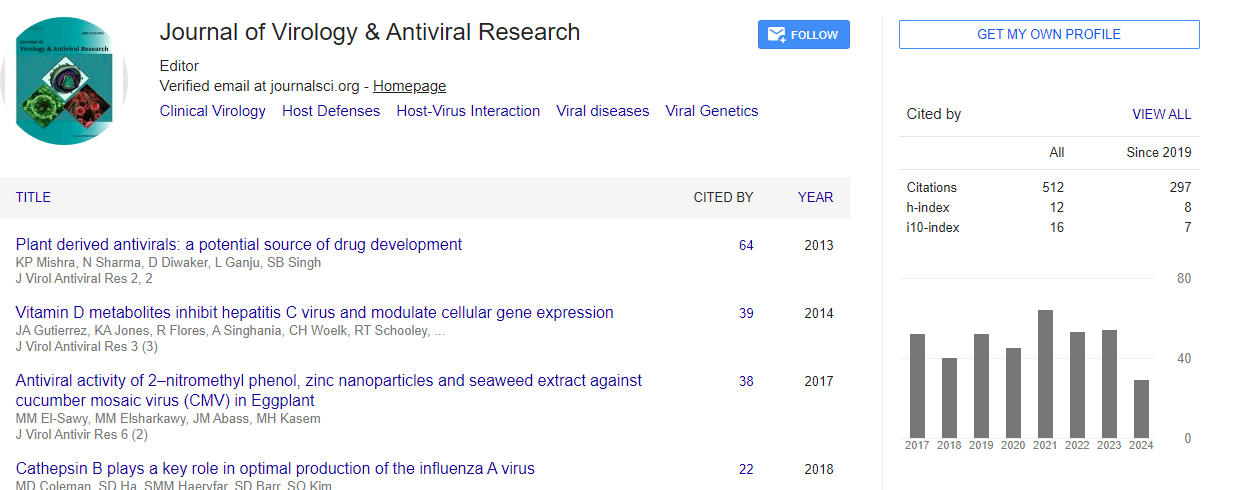Immune response and protection of one shot vaccinated pigs to transgenic plant-expressed classical swine fever virus E2 protein
Dong-Jun An
Animal and Plant Quarantine Agency, South Korea
: J Virol Antivir Res
Abstract
Classical swine fever virus (CSFV) is a member of the Pestivirus genus of the family of Flaviviridae and cause highly contagious and severe disease in pigs. The glycoprotein E2 is the most immunogenic envelope protein. In previous studies, we have produced the CSFV glycoprotein E2 developed using recombinant protein expression system in transgenic Arabidopsis (A. thaliana) and found its potential as an E2 subunit vaccine. The aim of this study is to evaluate possibility as an emergency vaccine after CSFV challenge in one-time vaccinated pigs. To produce E2 protein in plants, we have designed expression constructs considering many aspects such as high-level expression, protein purification and subcellular targeting. The cellulose binding domain (CBD) used for purification affinity tag and the BiP leader sequence used as the organellar targeting signal and added the ER retention signal HDEL to induce the accumulation of protein in the ER. The final fusion constructs BiP-E2CBD-HDEL. The vaccine contained transgenic-plant E2 protein (100 ug/dose) prepared in a 1:1 water-in-oil emulsion with the adjuvant IMS1313. Ten-week-old piglets were randomly divided to three vaccine groups (4 pigs/group) and then pigs in groups challenged to a virulent CSFV at 7, 11 and 14 days of post vaccination, respectively. Pigs of negative control group and of 1 group of 7 days of post vaccination (DPV) identified all die including leucopenia, high fever, clinical sign, etc. The 3 group pigs of 14 DPV also showed temporary leucopenia and high fever in several pigs. The possibility of one shot vaccine as the emergency vaccine will be difficult but two-time vaccine is required to achieve sufficient immune response efforts. It may need further investigation on the possibility of the differentiation of infected from vaccinated animals (DIVAs) by serological tests.
 Spanish
Spanish  Chinese
Chinese  Russian
Russian  German
German  French
French  Japanese
Japanese  Portuguese
Portuguese  Hindi
Hindi 

